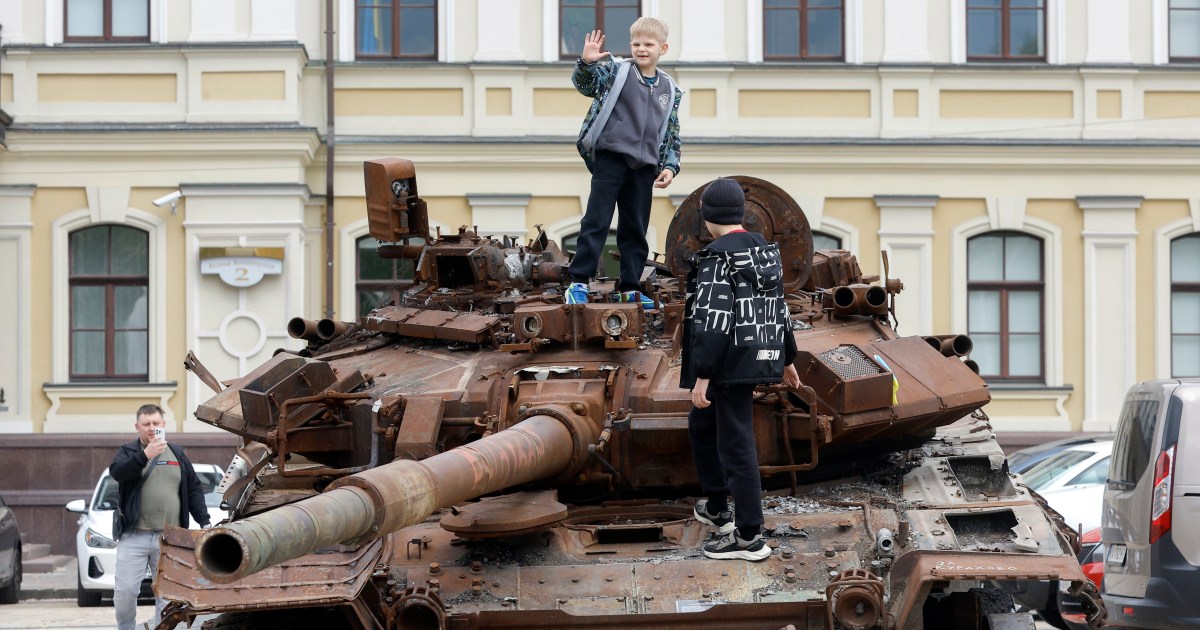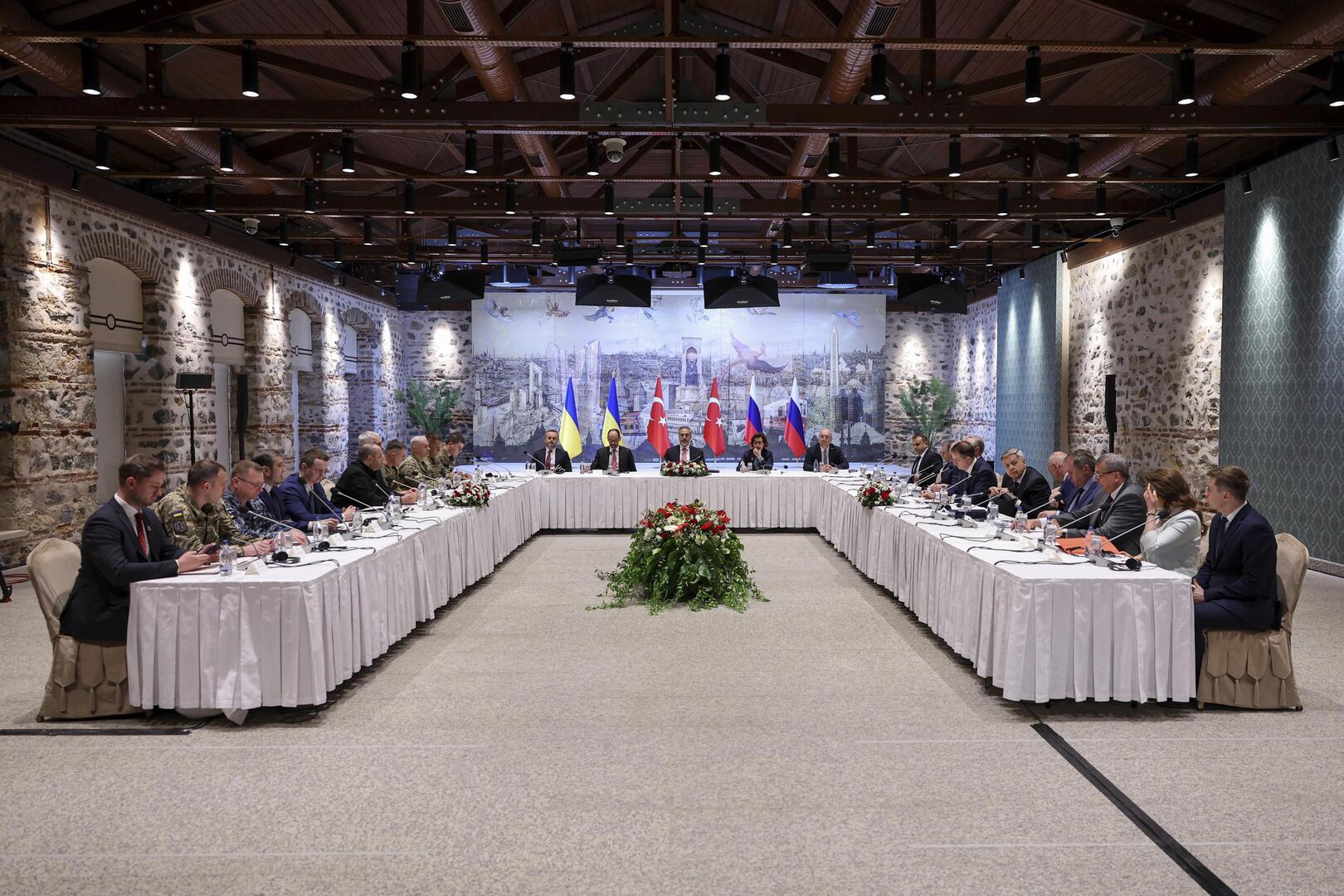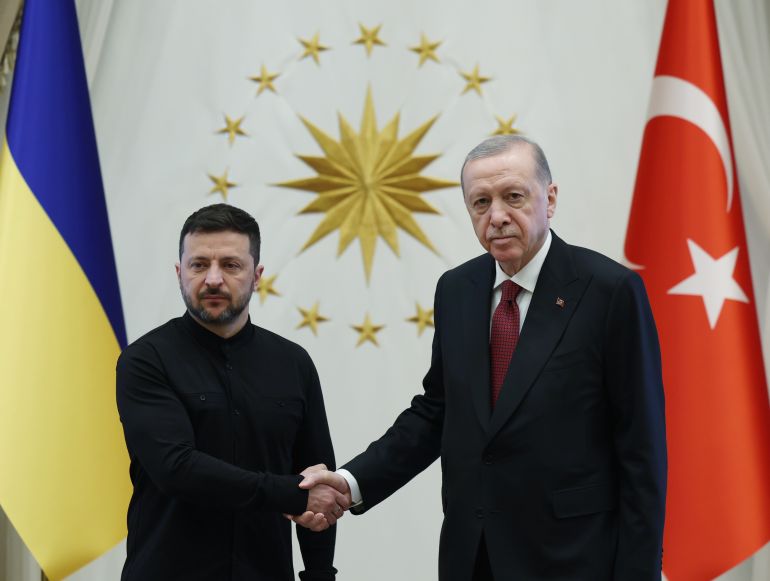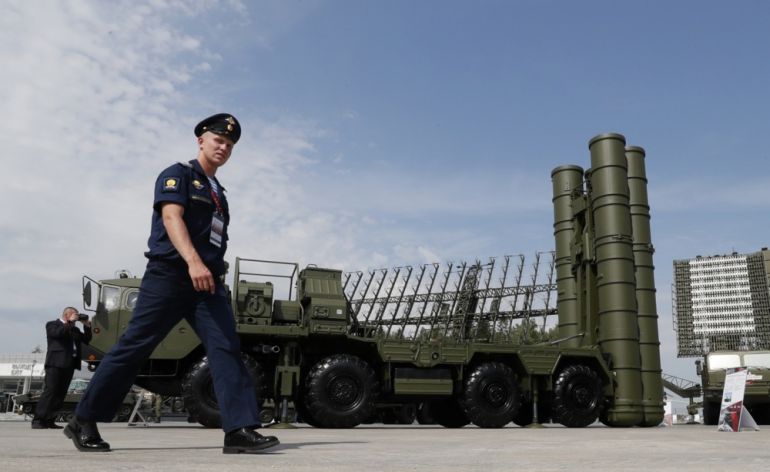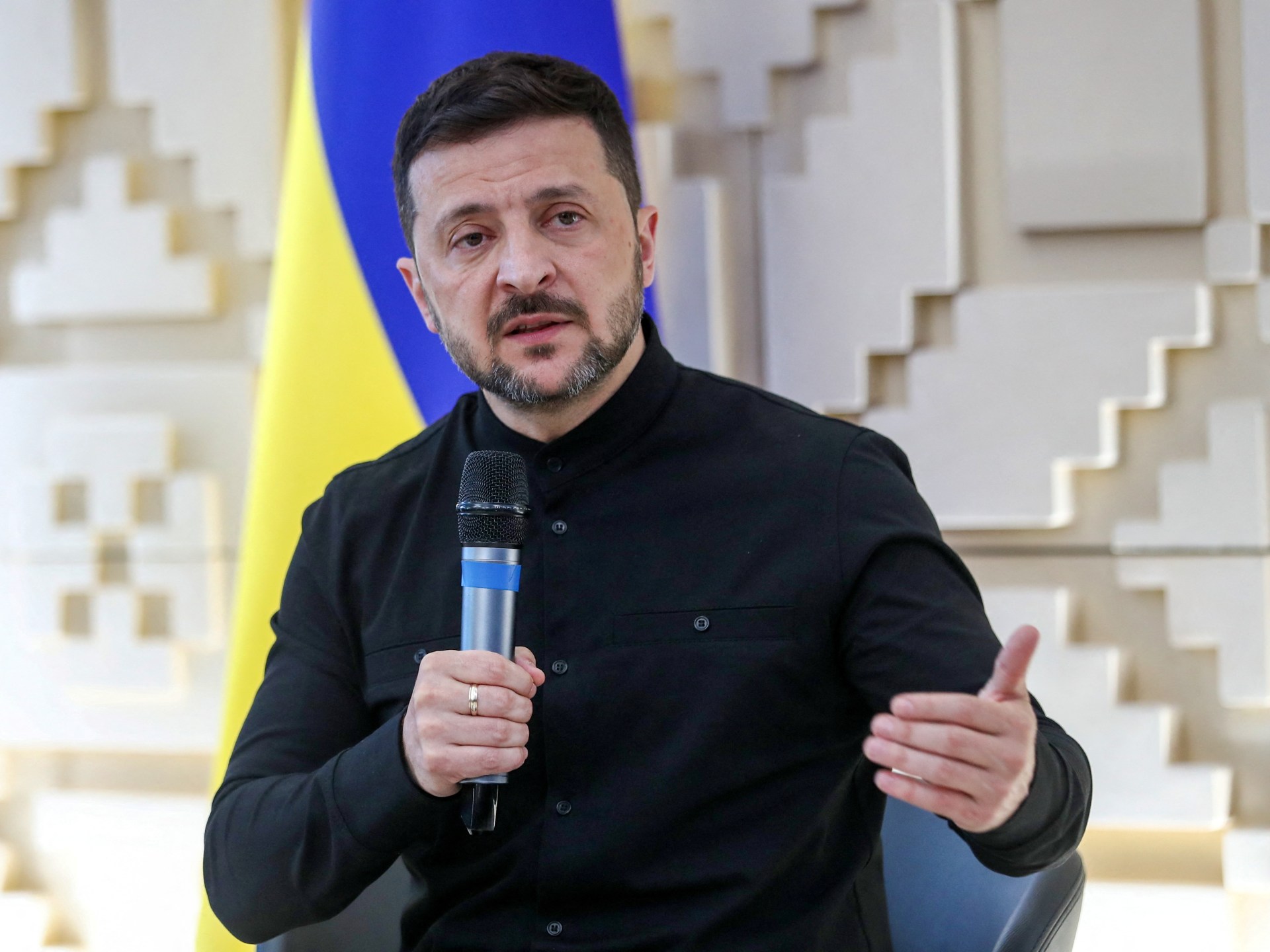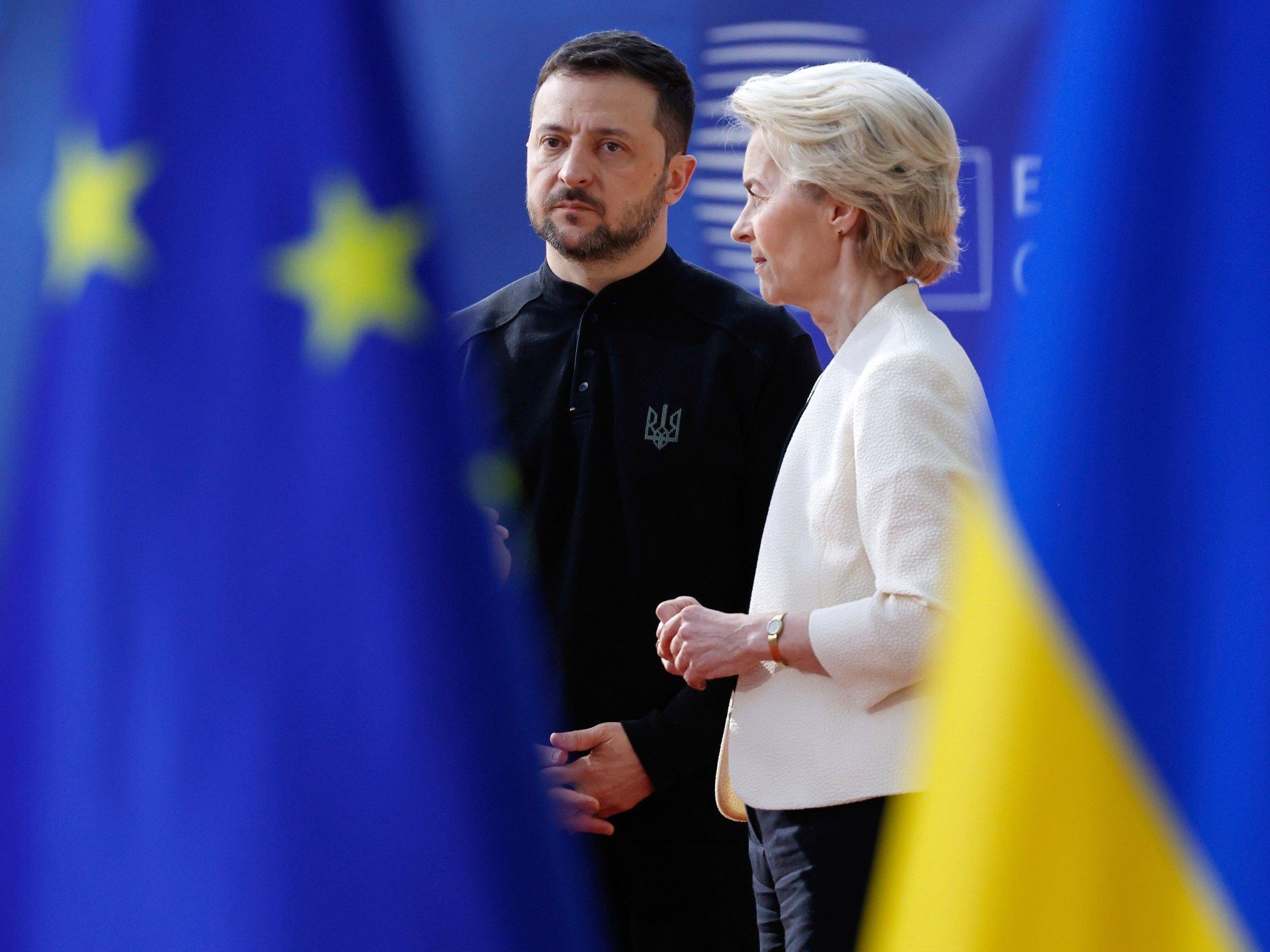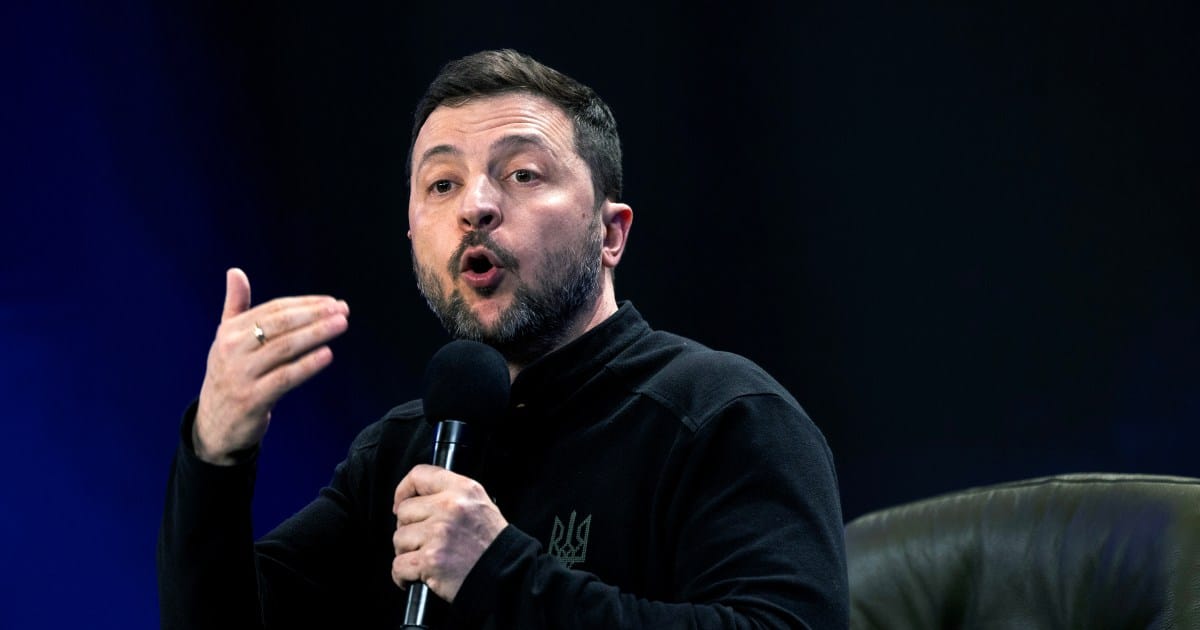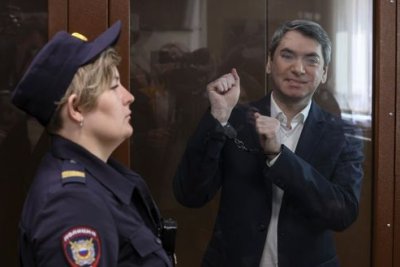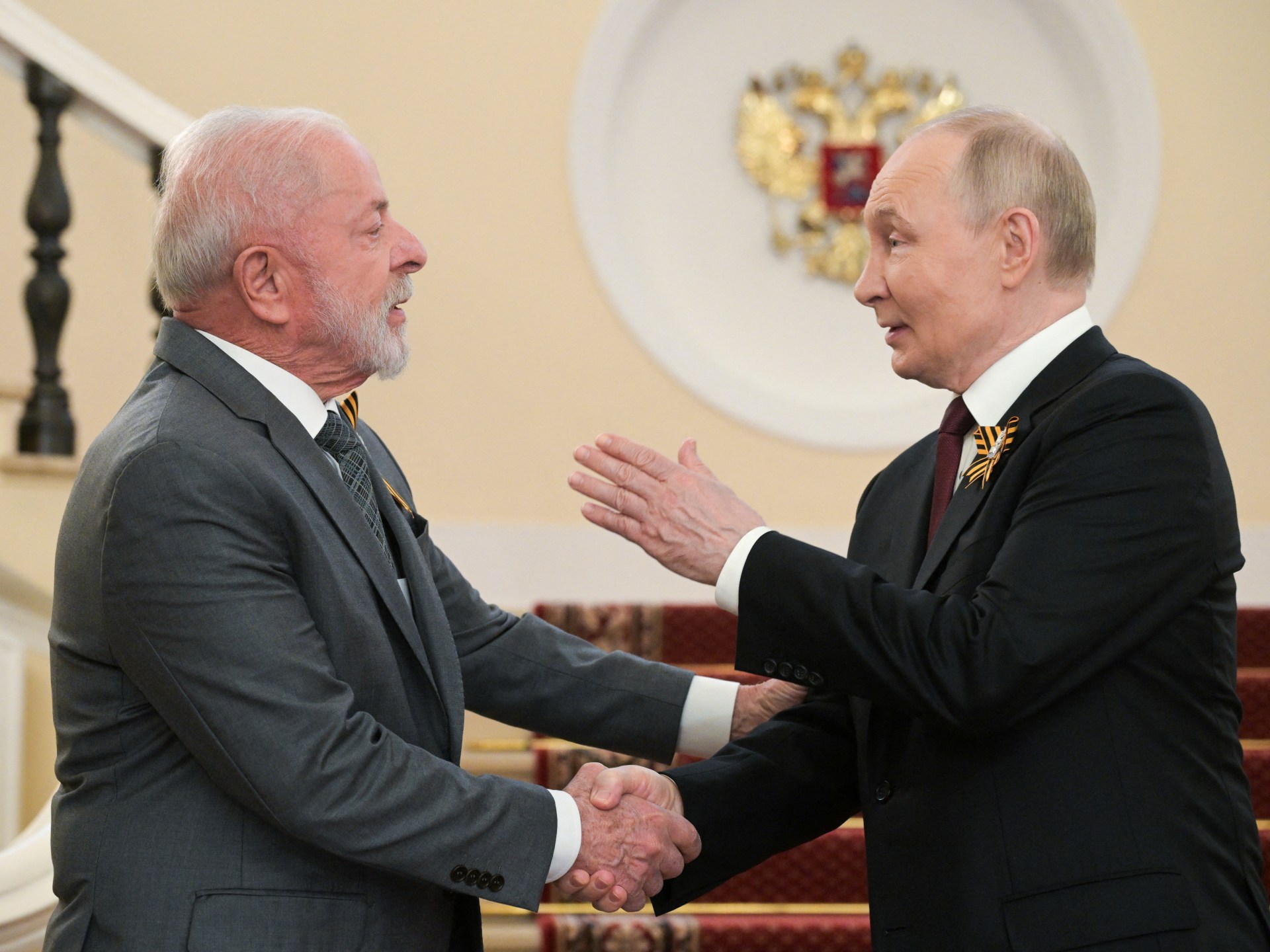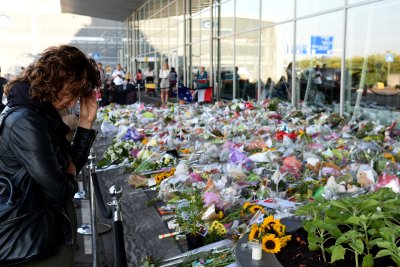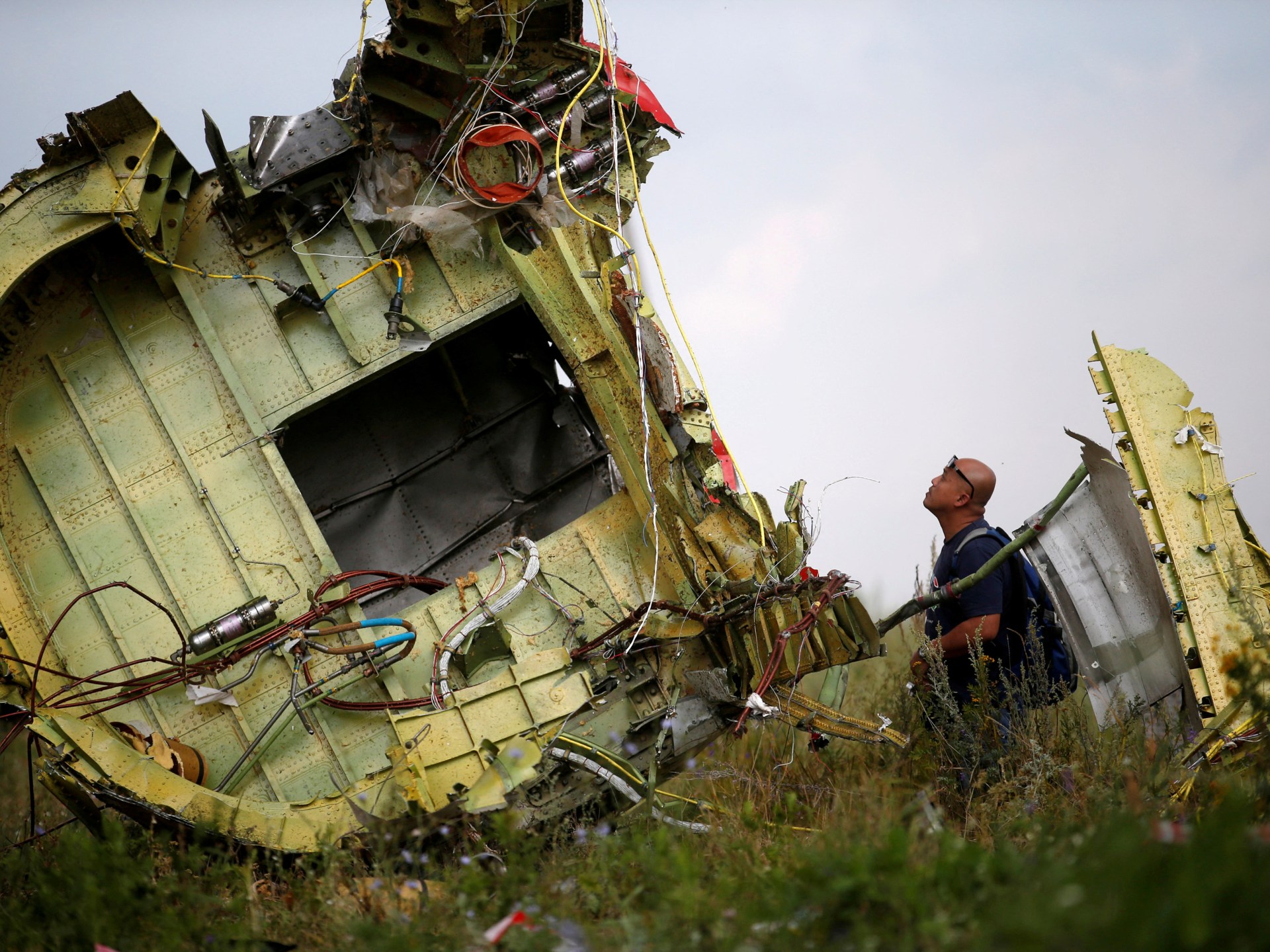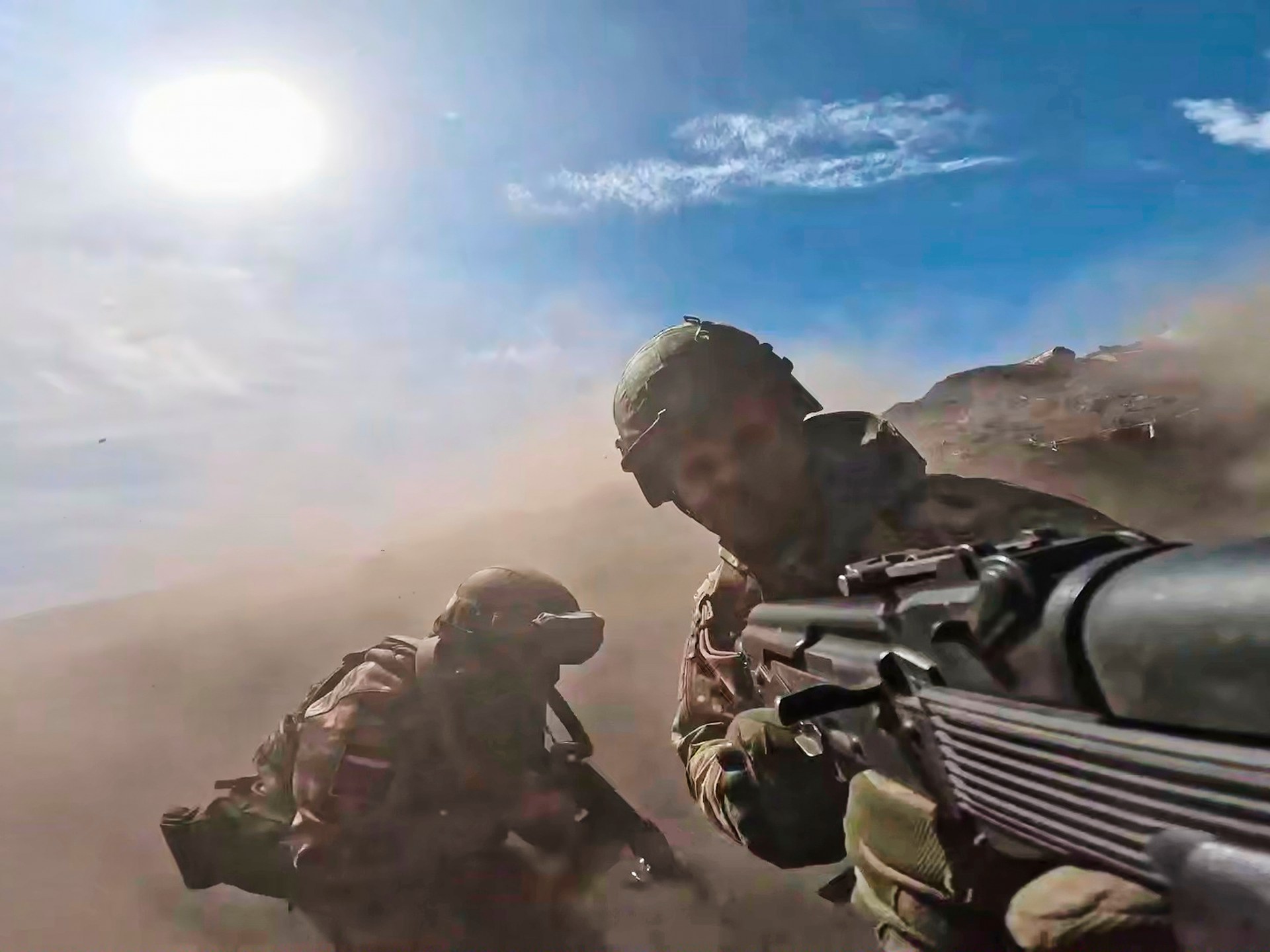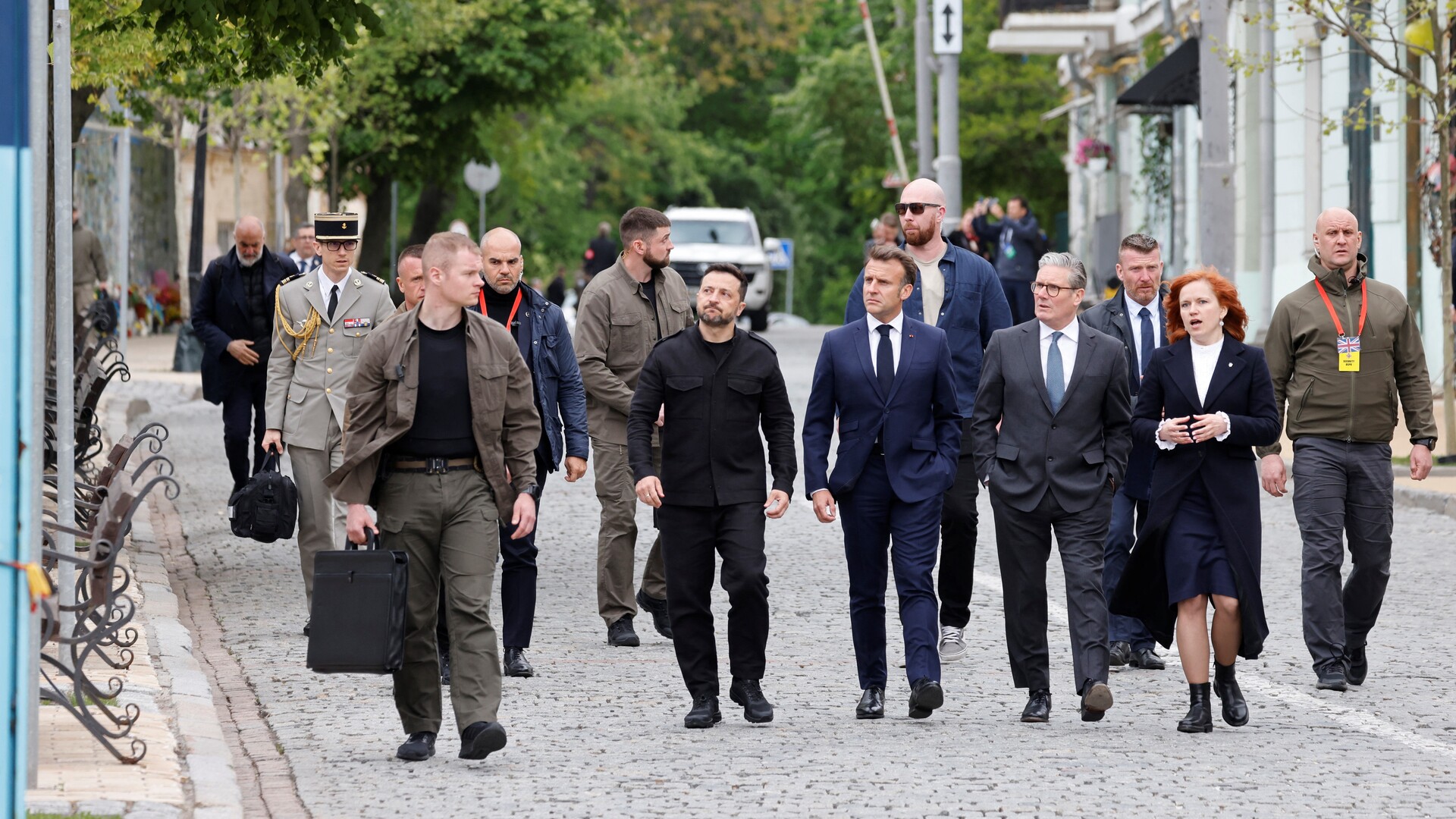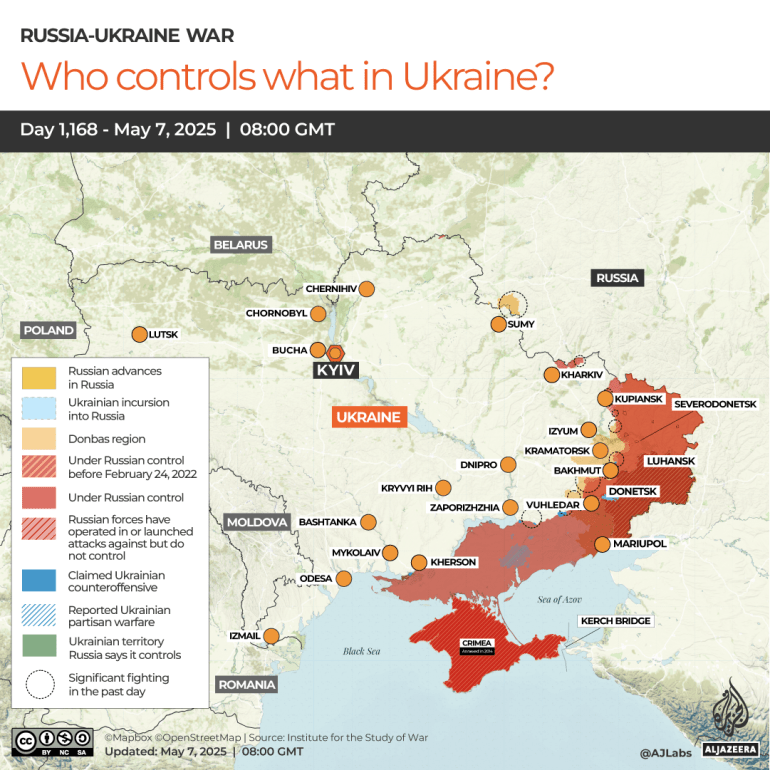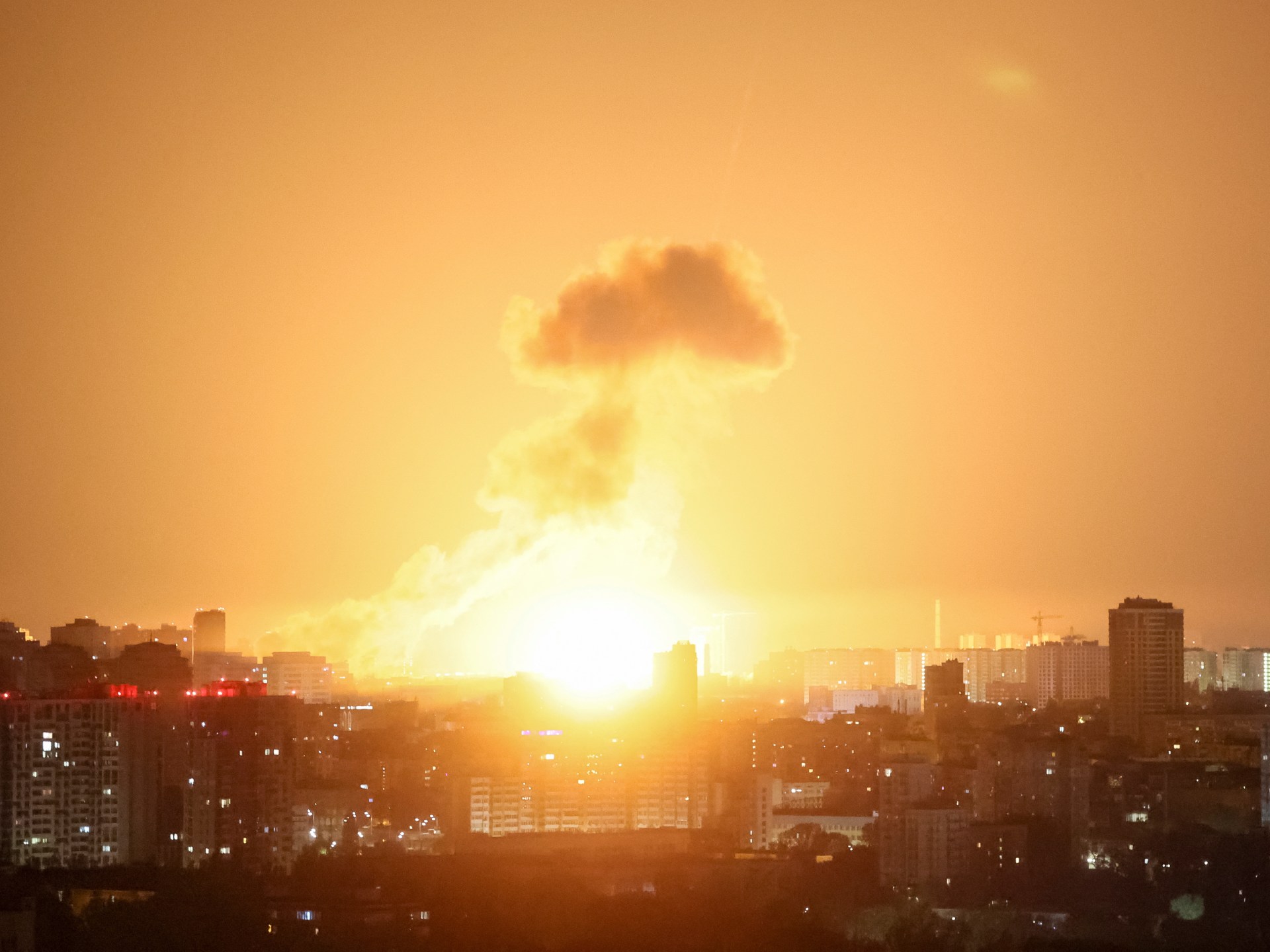Russia-Ukraine war: List of key events, day 1,178 | Russia-Ukraine war News
These are the key events on day 1,178 of Russia’s war on Ukraine.
Here is where things stand on Saturday, May 17:
Fighting
- Russia is preparing for a new military offensive in Ukraine, the Ukrainian government and Western military analysts said, as Russia’s Defence Minister Andrei Belousov was in Minsk on Friday to discuss joint military drills in September and deliveries of new weapons to Belarus.
- A drone attack on the northeastern Ukrainian city of Kupiansk killed a 55-year-old woman and wounded four men, said Oleh Syniehubov, head of the Kharkiv Regional Military Administration.
- Russia’s Ministry of Defence said that its forces seized six settlements in eastern Ukraine over the past week. According to a ministry statement, Russian troops advanced in the Donetsk region and took control of Torske, Kotlyarivka, Myrolyubivka, Mykhailivka, Novooleksandrivka, and Vilne Pole settlements, Tukiye’s Anadolu news agency reports.
- The Russian Defence Ministry released a video showing Russian forces raising the Russian flag in the settlement of Mykhailivka.
- A court in Ukraine’s Russian-occupied Luhansk region sentenced Australian national Oscar Charles Augustus Jenkins to 13 years in jail at a high-security penal colony for fighting on behalf of Ukraine, Anadolu reports.
Ceasefire
- The first direct Russia-Ukraine dialogue in three years on Friday produced good results, Kirill Dmitriev, Russian President Vladimir Putin’s investment envoy, said late on Friday. “1. Largest POW exchange 2. Ceasefire options that may work 3. Understanding of positions and continued dialogue,” Dmitriev said on the social media platform X.
- Ukrainian Defence Minister Rustem Umerov said following the talks that some 1,000 prisoners from each side will be swapped “in the near future”, in the largest exchange since the start of the war in 2022.
- Umerov led the Ukrainian delegation, which ended after 90 minutes in Istanbul, while Putin’s adviser, Vladimir Medinsky, negotiated on behalf of Russia. The United States delegation was led by Secretary of State Marco Rubio.
- Medinsky, who was the lead Russian negotiator, expressed satisfaction with the talks and said Moscow was ready for further negotiations, including on a ceasefire. “We have agreed that all sides will present their views on a possible ceasefire and set them out in detail,” Medinsky said after the meeting.
- A source in the Ukrainian delegation told the Reuters news agency that Russia’s demands were “detached from reality and go far beyond anything that was previously discussed”. The source said Moscow had issued ultimatums for Ukraine to withdraw from parts of its own territory in order to obtain a ceasefire “and other non-starters and non-constructive conditions”.
- Turkish Foreign Minister Hakan Fidan, who opened the talks by welcoming both delegations and calling for a swift ceasefire, served as a buffer between the negotiating tables in Istanbul’s Dolmabahce Palace.
- Ukrainian President Volodymyr Zelenskyy expressed regret after the talks at what he called a missed opportunity for peace. “This week, we had a real chance to move towards ending the war – if only Putin hadn’t been afraid to come to Turkiye,” Zelenskyy posted on X from the sidelines of a European Political Community (EPC) summit in Albania.
- Zelenskyy, who did not attend the talks, said he had been “ready for a direct meeting with him [Putin] to resolve all key issues”, but “he didn’t agree to anything”.
- US President Donald Trump, who has pressed for an end to the conflict, said he would meet with Putin “as soon as we can set it up” in a bid to make progress in the peace talks. “I think it’s time for us to just do it,” Trump told reporters in Abu Dhabi as he wrapped up a trip to the Middle East.
- Zelenskyy was in Tirana, Albania, on Friday with European leaders to discuss security, defence and democratic standards against the backdrop of the war. He held a phone call with French President Emmanuel Macron, German Chancellor Friedrich Merz, British Prime Minister Keir Starmer and Polish Prime Minister Donald Tusk.
- European leaders also agreed to press ahead with joint action against Russia over the failure in Turkiye to agree to a ceasefire in Ukraine, Prime Minister Starmer said after consultations with President Trump.
- Starmer said after the talks that the Russian position was “clearly unacceptable” and that European leaders, Ukraine and the US were “closely aligning” their responses.
- European Commission President Ursula von der Leyen announced new plans for additional sanctions on Moscow after Putin failed to travel to Turkiye to negotiate with Ukraine.
- US senators renewed calls on Friday for Congress to pass sanctions on Russia after Russia-Ukraine ceasefire talks showed little progress, but no votes were scheduled on bills introduced six weeks ago aimed at pressuring Moscow to negotiate seriously.
Regional security
- Russia and Belarus are preparing a new, large military manoeuvre together, the Belarusian state agency BelTA reports. “We plan to jointly develop measures to counter aggression against the Union State,” Defence Minister Belousov said during a meeting with his Belarusian counterpart, Viktor Khrenin, in Minsk, according to BelTA. The Union State combines Russia and Belarus.
- The exercise, dubbed Zapad-2025, or West-2025 in English, will be the main event of the combat training of the regional troop formations, he said. The manoeuvre is planned for mid-September, according to the agency.
Economy and trade
- Russia’s economic growth slowed to 1.4 percent year-on-year in the first quarter of 2025, the lowest quarterly figure in two years, data from the official state statistics agency showed on Friday.
- Economists have warned for months of a slowdown in the Russian economy, with falling oil prices, high interest rates and a downturn in manufacturing all contributing to headwinds. Moscow reported strong economic growth in 2023 and 2024, largely due to massive state defence spending on the Ukraine conflict.
- The Council of the Baltic Sea States (CBSS), which represents the democratic countries bordering the Baltic Sea, called for new shipping rules to allow for stronger joint action against Russia’s so-called shadow fleet.
